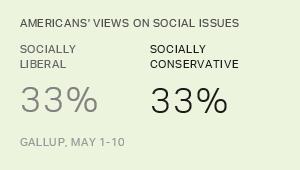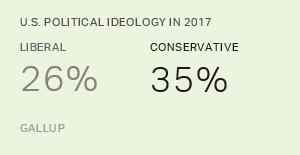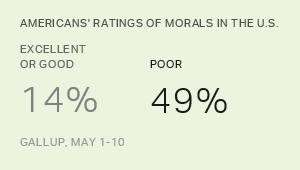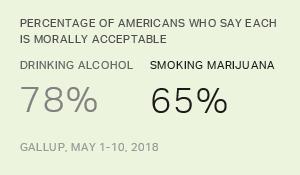Story Highlights
- Liberals and conservatives differ the most in their views of abortion
- Of 21 issues, both groups most likely to rank birth control as morally acceptable
- Liberals and conservatives both say extramarital affairs least acceptable
WASHINGTON, D.C. -- Americans who say they hold liberal views on social issues differ markedly from social conservatives on the morality of most moral issues, with the largest gap in opinions on abortion. The two groups also diverge greatly on gay/lesbian relations, having a baby outside of marriage, sex between teenagers and euthanasia. Liberals are much more likely than conservatives to view each as morally acceptable.
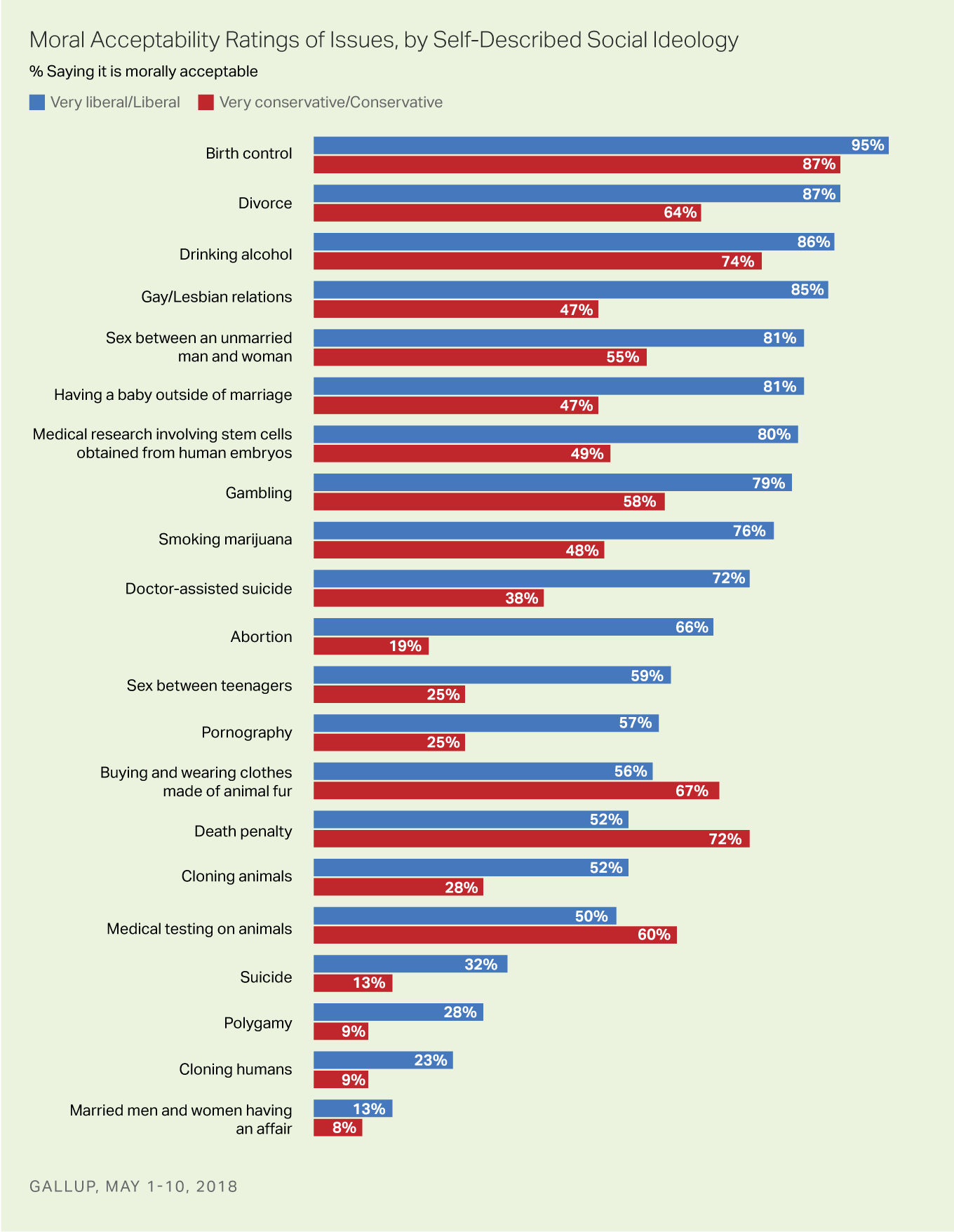
The latest results are based on Gallup's May 1-10 Values and Beliefs poll. In 1999, Gallup first asked Americans to describe their views on social issues using a five-point "very liberal" to "very conservative" scale. Since 2001, the question has been asked at least annually.
The percentages of Americans who identify as socially liberal and socially conservative are currently equal at 33%. Although this is only the second time since 1999 that the percentages have been identical, the two groups have been trending closer over the past six years. Yet, before 2013, social conservatives had a clear numerical advantage over social liberals.
The diminished conservative advantage in social ideology is consistent with a trend for Americans to move toward more liberal (that is, less conservative) positions on a host of social issues, including gay marriage, marijuana legalization, animal cloning and pornography.
Of the 21 issues tested in this poll, 16 are considered morally acceptable by majorities of social liberals, while only eight are viewed as acceptable to majorities of social conservatives. Just three issues are viewed as morally acceptable by more social conservatives than liberals -- the death penalty, buying and wearing clothes made of animal fur, and medical testing on animals.
Both groups are most likely to rank birth control as acceptable and least likely to rank extramarital affairs as acceptable. Additionally, majorities of both groups view the following as morally acceptable: premarital sex, gambling, divorce, drinking alcohol, the death penalty, and buying and wearing clothes made of animal fur.
Bottom Line
Over the past decade, Americans have become more likely to identify as liberal on social issues, and as a result, they have achieved parity with social conservatives. This polarization is seen in the views of both groups across a wide range of issues, particularly abortion and gay/lesbian relations. As the midterm election campaigns heat up, candidates will have to weigh the pros and cons of focusing on the most divisive issues.
Survey Methods
Results for this Gallup poll are based on telephone interviews conducted May 1-10, 2018, with a random sample of 1,024 adults, aged 18 and older, living in all 50 U.S. states and the District of Columbia. For results based on the total sample of national adults, the margin of sampling error is ±4 percentage points at the 95% confidence level. All reported margins of sampling error include computed design effects for weighting.
Each sample of national adults includes a minimum quota of 70% cellphone respondents and 30% landline respondents, with additional minimum quotas by time zone within region. Landline and cellular telephone numbers are selected using random-digit-dial methods.
View survey methodology, complete question responses and trends.
Learn more about how the Gallup Poll Social Series works.
